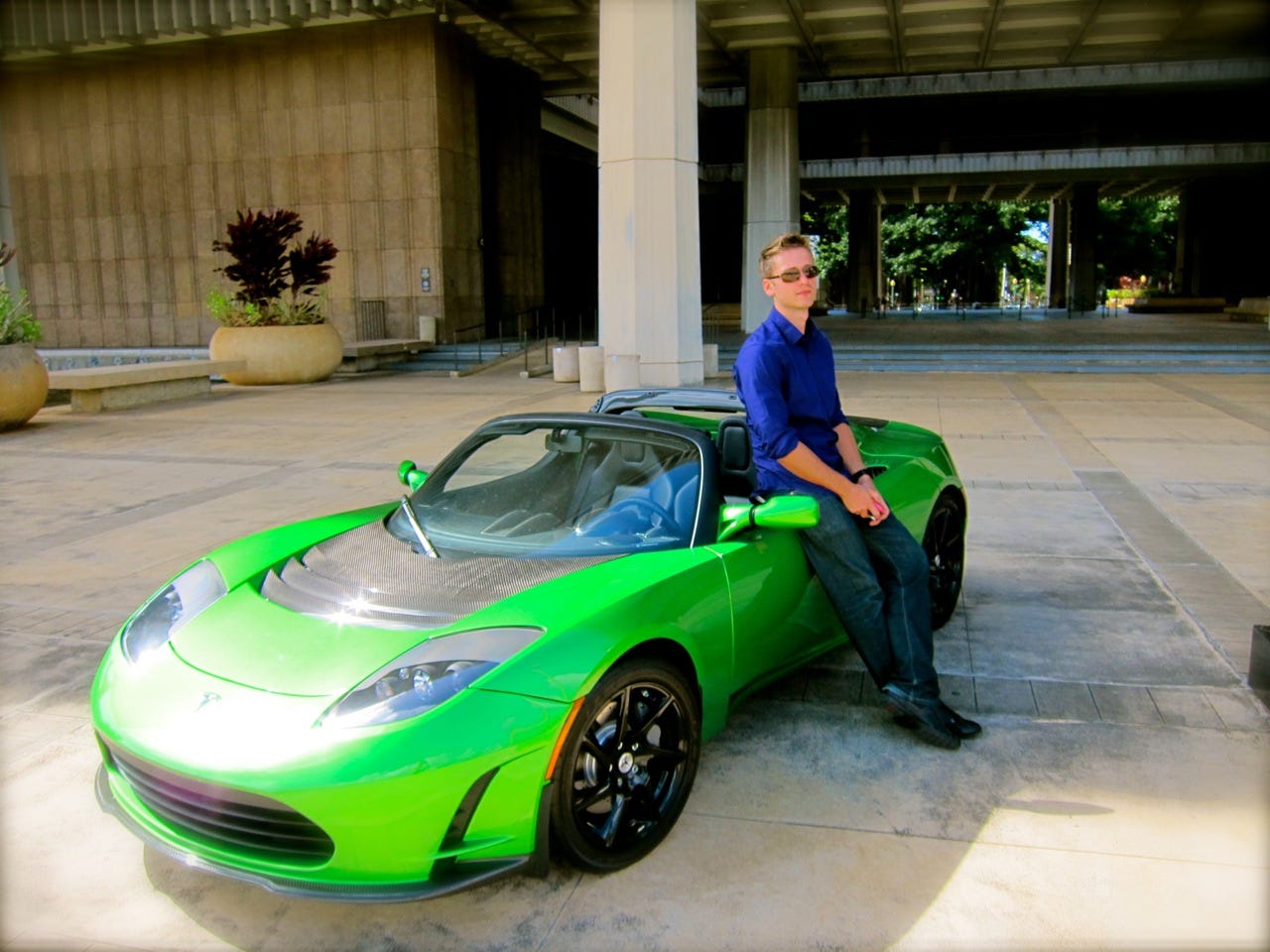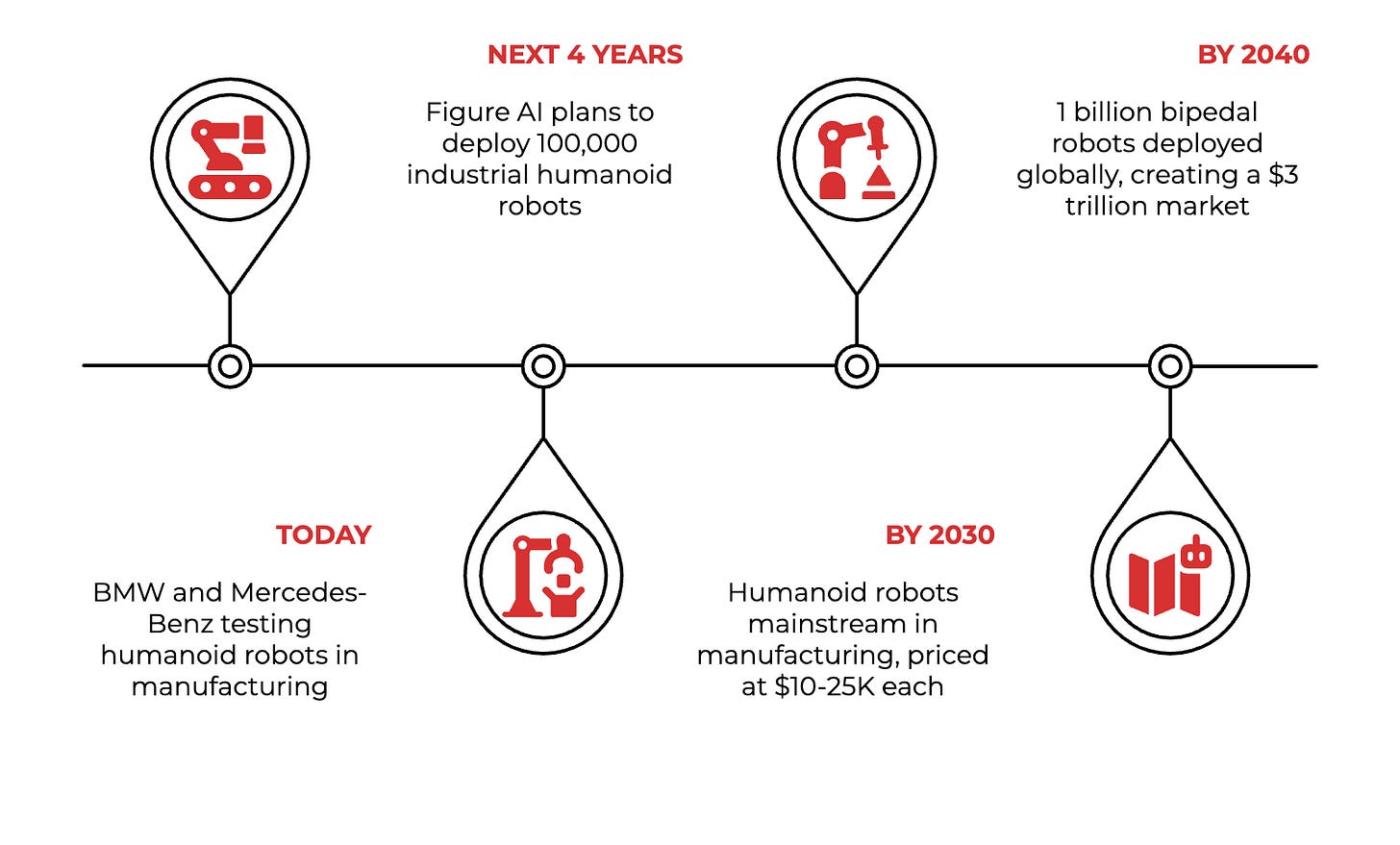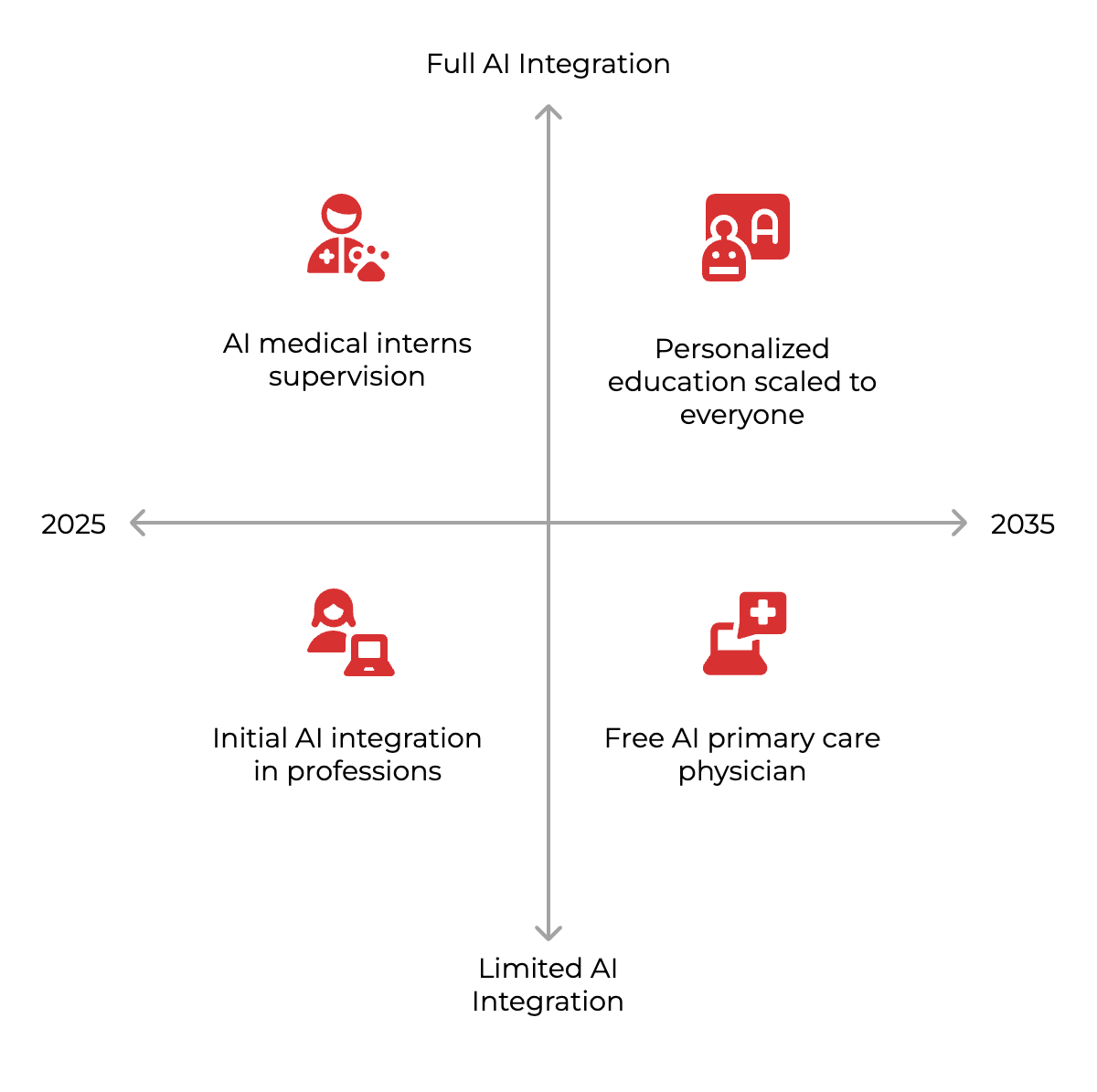The Trillion Dollar Reset Coming To Every Industry
Khosla Predicts AI Plus Robotics Will Reshape Work Faster Than You Think
Hey Adopter,
I recently watched an interview between Vinod Khosla and Peter Diamandis that I found very insightful. You can watch the interview here. This edition will dissect Khosla's predictions and their implications for the future of work and business.
I'm excited to see geothermal energy gaining attention, especially since my first startup, Kūʻokoa, was focused on transitioning Hawaii off fossil fuels using geothermal energy from the Big Island.

Here's a link to the full story👇
I Almost Bought Hawaii’s Electric Utility for $6B and Made It a Renewables Paradise
Now, back to the main topic, Khosla made several provocative predictions that business leaders need to pay attention to. "The business of bipedal robots will be larger than the auto industry within 20 years," he stated confidently, "and the auto industry doesn't know it." He also predicted that expertise itself will become democratized, suggesting that "if all expertise were free, how would you design a healthcare system?" This fundamental question applies to virtually every industry.
What struck me most was Khosla's insistence that the only certainty about the future is uncertainty: "The only thing we know about the future is it'll be uncertain. We have to figure it out in increments." Despite this uncertainty, he's making decisive bets on technologies that could fundamentally reshape our economy—from AI and robotics to fusion and geothermal energy. Let's explore the business implications of these predictions.
The Labor Equation Is About To Flip
Tech investor and OpenAI backer Vinod Khosla recently made a prediction that should shake any business leader: we're heading toward a billion bipedal robots by 2040. These won't be science fiction novelties—they'll be workhorses that collectively perform more labor than all of humanity combined.
Think that sounds far-fetched? BMW and Mercedes-Benz aren't waiting to find out. They're already testing humanoid robots in real manufacturing environments. The automotive giants recognize what most industries don't: that humanoid robotics will become larger than the entire auto industry itself within 20 years.
The implications run deeper than most operational leaders realize. When physical labor becomes programmable at scale, the bottleneck shifts from execution to imagination—exactly where AI excels.
AI Expertise Will Become A Utility
Most businesses are still treating AI as a premium add-on rather than recognizing the inevitable: expertise itself is becoming democratized. Khosla argues that within 5-10 years, expertise will be effectively free, with AI-based tutors and doctors available 24/7.
The business model implications are staggering. What happens when the expertise you're selling becomes a commodity? The value shifts from knowledge itself to how it's applied, contextualized, and executed. The organizations that survive won't be the ones hoarding information—they'll be the ones mobilizing it most effectively.
Programming Is Transforming From Code to Conversation
Your IT department's 18-month backlog is about to become irrelevant. Natural language interfaces are rapidly closing the gap between idea and execution. In Khosla's vision, "In the past, users of computers have had to learn computers. I think in the future computers will learn from humans."
This shift is fundamental. The distinction between technical and non-technical teams dissolves when coding transitions from syntax to conversation. The companies winning with AI aren't creating more specialized silos—they're breaking them down and empowering everyone to build.
The Cost Equation Flips When Energy Gets Cheap
While most business leaders obsess over the next quarter, Khosla is focusing on the energy revolution that will rewrite economic fundamentals. He predicts that by the 2040s, we will replace every coal and natural gas plant with clean energy, likely from fusion or geothermal sources.
Why does this matter to your AI strategy? Because when energy cost structures radically shift, computational limits do too. The businesses that will dominate aren't just adapting to today's AI—they're positioning for the exponential capabilities that abundant energy will enable.
Transportation Rethink That Most Are Missing
The transportation revolution isn't just about self-driving cars—it's about fundamentally reimagining mobility. Khosla envisions AI-driven public transit that could increase street capacity tenfold, essentially creating "10 streets wherever you had one."
The real opportunity isn't incrementally improving current systems but questioning fundamental assumptions about how movement happens. Most organizations are still optimizing for the wrong constraints—asking how to make the current system better rather than imagining what systems become possible with new technology.
The Pragmatic Path Forward
Don't mistake these predictions for science fiction—they're the roadmap being followed by the world's most sophisticated technical organizations. But how do you translate these massive shifts into Monday morning action items?
Stop treating AI as a separate initiative and start embedding it into your core business processes.
Identify where your business relies on scarce expertise, and begin exploring how AI can scale it.
Look for the constraints everyone takes for granted in your industry—they're precisely what new technology will eliminate.
Build simple prototypes that prove concepts rather than planning comprehensive rollouts.
The window between competitive advantage and table stakes is shrinking. The AI technologies that seemed experimental last year are becoming operational requirements this year.
The companies that thrive won't be those with the biggest AI budgets or the most impressive demonstrations—they'll be the ones that recognize how these intersecting revolutions fundamentally change what's possible.
Adapt & Create,
Kamil








